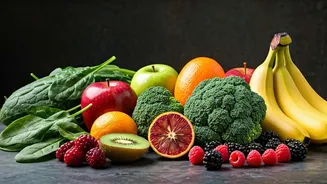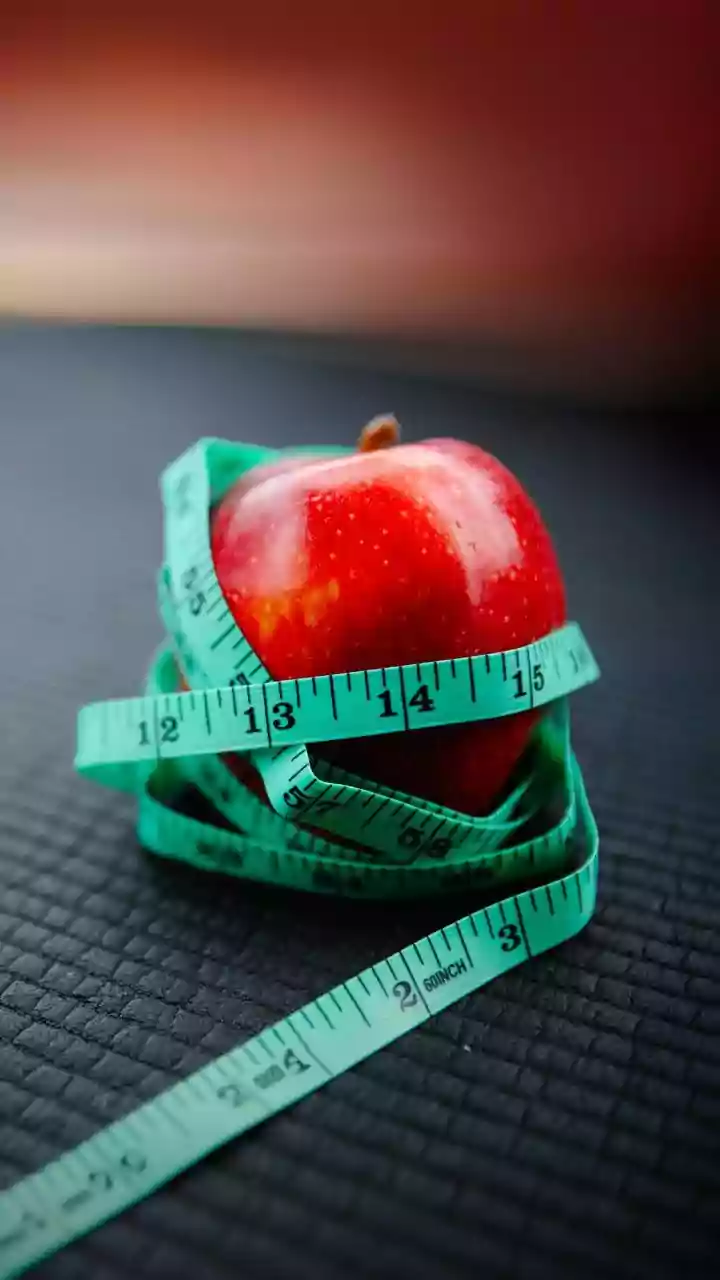Carb Categories Explained
Carbohydrates, or carbs, are broadly categorized into simple and complex types, each influencing your body differently. Simple carbohydrates, also known
as simple sugars, consist of monosaccharides (like glucose, fructose, and galactose) and disaccharides (such as sucrose, lactose, and maltose). These sugars are quickly digested, leading to a rapid spike in blood sugar levels, followed by a subsequent dip. Complex carbohydrates, on the other hand, include polysaccharides like starches and fiber. They're composed of many sugar molecules linked together, taking longer to break down. This slower digestion offers a sustained release of energy, preventing sharp fluctuations in blood sugar. Starches are found in foods like bread, pasta, rice, and potatoes, while fiber-rich carbs are abundant in fruits, vegetables, and whole grains. Opting for complex carbs generally provides a more balanced and lasting energy supply, supporting overall health and workout performance more effectively compared to the quick energy rush of simple sugars.
Carbs vs. Workouts: Facts
The relationship between carbohydrates and workouts is a significant one, often subject to various misconceptions. A common myth revolves around the idea that all carbs are detrimental to fitness goals. However, carbohydrates are, in fact, the body's primary energy source, critical for fueling both low and high-intensity exercise. Your muscles store glucose from carbs as glycogen, which is used during physical activity. Depleting glycogen stores can lead to fatigue and decreased performance. It’s important to distinguish between processed simple carbs, which can cause blood sugar spikes, and complex carbs that provide a slow, steady release of energy. Choosing the right types of carbs, such as whole grains, fruits, and vegetables, can enhance endurance and recovery. Proper carb intake supports muscle function, aids in protein absorption, and helps prevent muscle breakdown. Therefore, instead of entirely avoiding carbs, focus on consuming the right kind at the right times to maximize your workout results and overall well-being.
Energy Production: How Carbs
Carbohydrates play a pivotal role in the body’s energy production, fueling every cell and bodily function, especially during exercise. When you consume carbs, your body breaks them down into glucose, a type of sugar that enters the bloodstream. This glucose is then transported to cells and used for immediate energy. Any excess glucose is stored as glycogen in the liver and muscles. When you exercise, your muscles break down this stored glycogen into glucose, which is then used to fuel the workout. For activities requiring high energy output, the body efficiently converts glucose into ATP (adenosine triphosphate), the primary energy currency of cells. Without sufficient carbs, your body may resort to breaking down muscle protein for energy, which is counterproductive for fitness goals. A well-balanced diet rich in complex carbohydrates ensures adequate glycogen stores, providing consistent energy and supporting optimal performance during exercise. This emphasizes the importance of understanding carbohydrate metabolism to effectively fuel your body and maximize workout efficiency.
Balancing Nutrients with Carbs
While carbs are essential for energy, they should be considered within the context of a balanced diet. Focusing solely on carbs while neglecting other essential nutrients will not yield optimal results. Your body requires a combination of carbohydrates, proteins, and fats for overall health and peak performance. Proteins are crucial for muscle repair and growth, providing the building blocks your body needs post-workout. Healthy fats support hormone production and nutrient absorption, contributing to overall health. It's important to select a variety of nutrient-dense carbohydrate sources like whole grains, fruits, and vegetables. These foods provide fiber, vitamins, and minerals alongside carbs. Fiber slows down digestion and helps regulate blood sugar, offering sustained energy. Vitamins and minerals support various metabolic processes, contributing to overall well-being and exercise recovery. Consider the overall balance of your diet to optimize your fitness results and promote sustainable health.
Carb Timing: What Matters
Timing your carbohydrate intake can significantly enhance your workout results and body composition. Consuming carbs before your workout can provide an immediate energy source. This helps fuel your muscles, improve endurance, and enhance performance. Good pre-workout carb options include a banana, a small bowl of oatmeal, or a slice of whole-grain toast with a bit of honey. Post-workout, carbs are equally important. They replenish glycogen stores that were depleted during exercise, aiding muscle recovery and repair. Pairing carbs with protein immediately after your workout can optimize muscle synthesis. Good choices here include a protein shake with a banana or a meal of chicken and rice. The best approach is to adjust your carb intake based on your activity level and training goals. On rest days, you can reduce your carb intake to maintain a healthy balance. Listen to your body and adjust your carbohydrate intake based on how you feel. Pay attention to how different times of consumption influence your energy levels, and you will achieve better results.





















